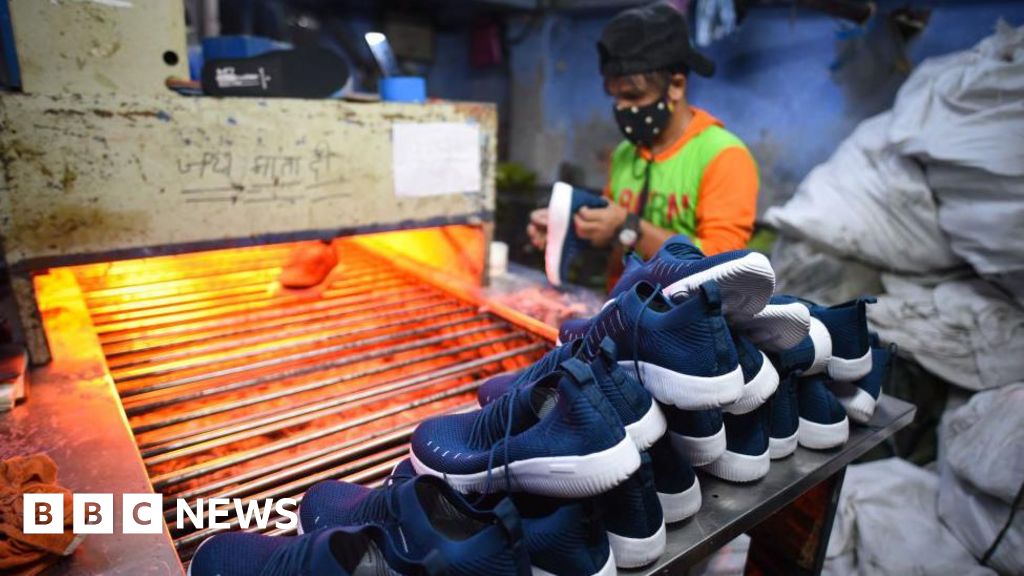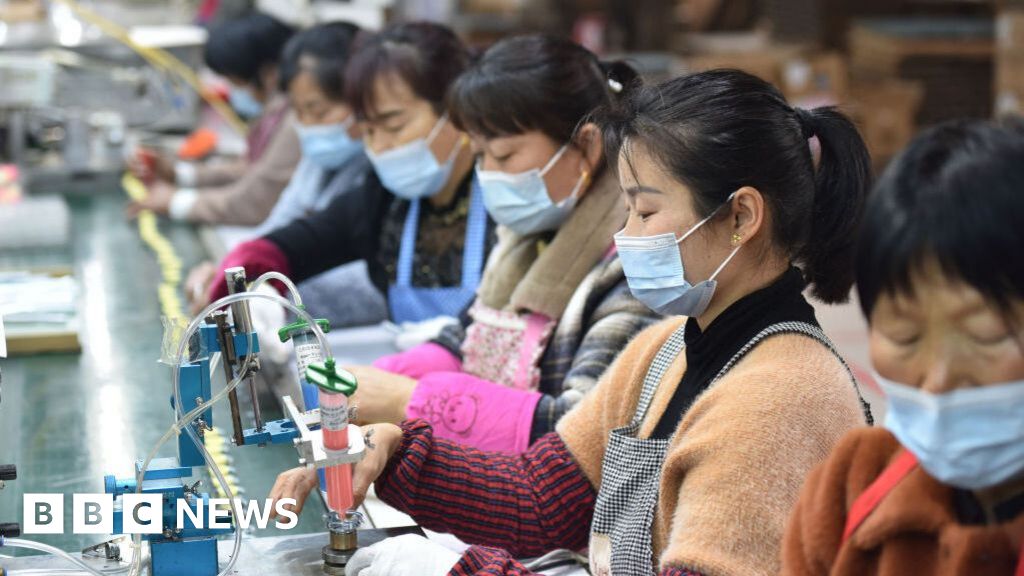Technology Reporter
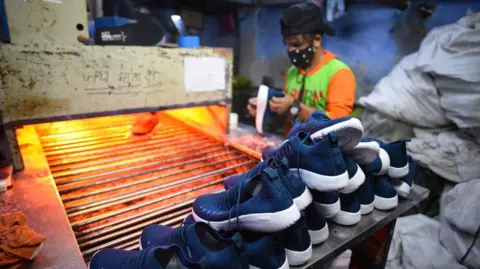 Getty Images
Getty ImagesIt’s likely that you have not heard of Taiwan’s Hong Fu Industrial Group, but look down on a busy street and you may well see its products.
Hong Fu is the world’s second-biggest maker of trainers (sneakers) supplying shoes to Nike, Converse, Adidas, Puma and many others. It makes around 200 million pairs of sports shoes a year.
So when it made a big investment in India’s market, the footwear industry took note.
Hong Fu is currently building a giant plant in Panapakkam, in the state of Tamil Nadu in south eastern India. When fully operation, sometime in the next three to five years, it will make 25 million pairs of shoes a year, employing as many as 25,000 workers.
The project has Indian partners, including Aqeel Panaruna, the chairman of Florence Shoe Company: “The international market is saturated and they [Hong Fu] were looking for a new market,” he explains.
“There is a drastic increase in non-leather footwear in India. It has huge potential,” Mr Panaruna added.
The Indian government is keen to attract such investment, hoping it will raise standards in the footwear industry and boost exports.
To spur the industry, last August the Bureau of Indian Standards (BIS) introduced new quality rules for all shoes sold in India.
Under those standards, for example, materials will have to pass tests of strength and flexibility.
“These BIS standards are really about cleaning up the market. We’ve had too many low-quality products flooding in, and consumers deserve better,” says Sandeep Sharma a journalist and footwear industry expert.

But many in India can’t afford shoes from well-known brands.
Serving them is a huge and intricate network of small shoe makers, known as the unorganised sector.
Their affordable products are estimated to account for two-thirds of the total footwear market.
Ashok (he withheld his full name) counts himself as part of that sector, with shoe making units all across the district of Agra in northern India. He estimates that 200,0000 pairs of shoes are made everyday by operations like his across Agra.
“Many consumers, especially in rural and lower-income urban areas, opt for cheaper local footwear instead of branded options,” he says.
“Many organised brands struggle to expand their retail footprint in semi-urban and rural areas because we cater to them.”
So how will the new government standards affect makers like Ashok?
“It’s complicated,” says Mr Sharma.
“I think the government is trying to walk a tightrope here. They can’t just shut down thousands of small businesses that employ millions of people – that would be economic suicide.
“What I’m seeing is more of a carrot-and-stick approach. They’re pushing for standards, but also rolling out programs to help small manufacturers upgrade their processes. It’s not about wiping out the unorganised sector but gradually bringing them into the fold.”
Making the situation more complicated is that the unorganised sector is well-known for making counterfeit shoes of big brands.
While popular among Indian shoppers looking for a stylish bargain, other countries have long-complained about the losses caused.
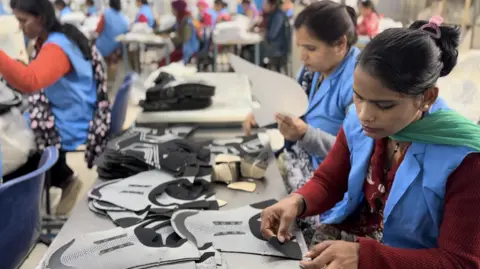 Zen Barefoot
Zen BarefootMeanwhile, a host of new Indian trainer-makers are springing up, to serve India’s growing middle class.
Sabhib Agrawal is trying to get those buyers interested in barefoot footwear – shoes which, their makers say, are healthy for the foot as they encourage natural, or barefoot, movement.
Mr Agrawal says his company, Zen Barefoot, is unusual as much of the Indian footwear industry is not very innovative.
“There are very few people who are ready to take time and invest in new technologies here. Indian manufacturing is a very profit- first market, ROI [return on investment] driven.
“And in a lot of cases, even the government is not ready to enable these industries through grants or tax relief, which makes it quite difficult.”
Comet is one Indian firm looking to innovate.
It claims to be the first homegrown trainer brand that owns the whole production process, from design to manufacturing.
“This level of control allows us to experiment with materials, introduce innovative silhouettes, and continuously refine comfort and fit based on real feedback,” says founder Utkarsh Gupta.
He says the Comet shoes are adapted to India’s climate and roads.
“Most homegrown brands rely on off-the-shelf soles from the market, but when we started Comet, we realized that these were lacking in quality, durability, and grip,” he says.
Change is coming to the footwear sector he says. “The shift to high value is now happening.”
“Many high value brands need to move their manufacturing to India. In 3-5 years, we should have a robust ecosystem to compete in the international sneaker market,” he adds.
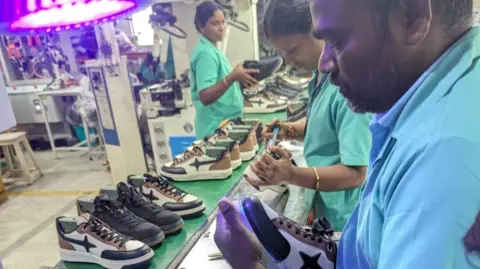 Comet
CometBack in Agra, Ashok hopes that the unorganised sector is not neglected amid the growth of India’s footwear industry.
“The government should give us accreditation and certificates so our factories don’t close down. Once we too are included in the organised sector no one can beat India in the shoe manufacturing industry.”
But Mr Sharma says change is inevitable.
“The market is definitely going to shift. We’ll see the bigger players getting bigger – they have the money to adapt quickly.
“But I don’t think the small guys will disappear completely. The smart ones will find their niche.”
Credit: Source link

